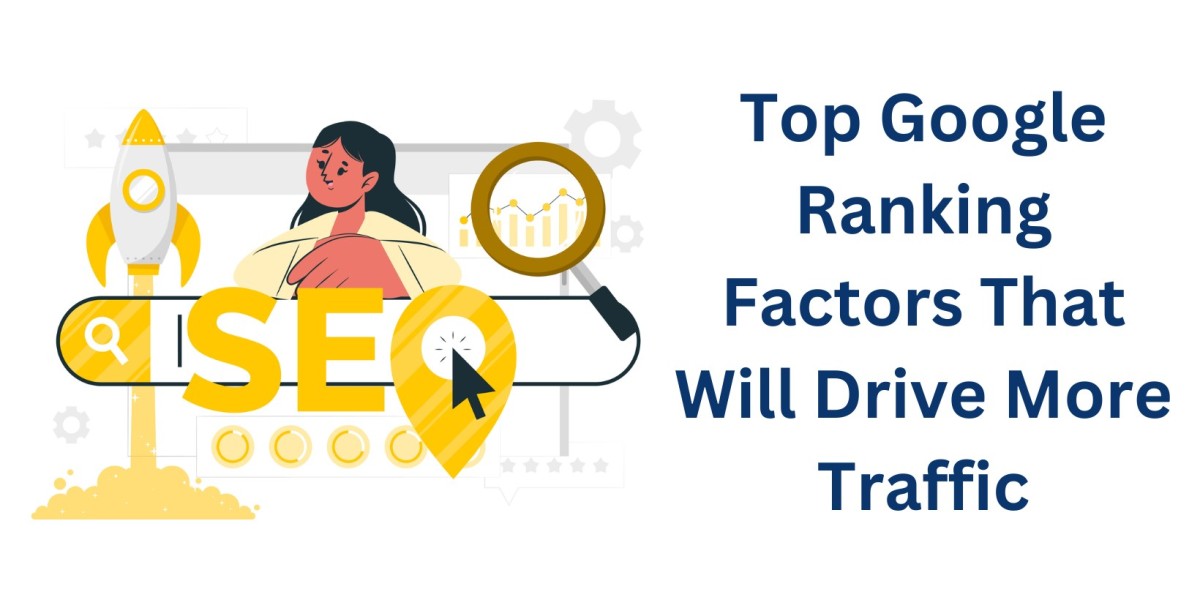Understanding Google's ranking factors is essential for anyone aiming to increase their website traffic through organic search. Google uses a complex algorithm that considers numerous factors to determine the relevance and authority of web pages. This article explores some of the top ranking factors that can help you improve your website's visibility and attract more visitors.
Importance of Google Ranking Factors
Google dominates the search engine market, with a significant majority of internet users relying on it to find information, products, and services. Ranking high in Google search results can lead to increased organic traffic, more leads, and ultimately, higher conversion rates. Here are the key factors that influence Google's ranking decisions:
1. Content Quality and Relevance
High-quality, relevant content is crucial for achieving and maintaining a high Google ranking. Content should be informative, well-written, and address the search intent of users. Google rewards websites that provide valuable content with better visibility in search results.
Actionable Tips: Focus on creating comprehensive content that answers common questions, provides solutions to problems, or offers unique insights. Regularly update and optimize your content to keep it relevant and valuable to your audience.
2. Backlinks
Backlinks, or links from other websites to yours, are a strong signal of authority and trustworthiness to Google. Quality backlinks from reputable sites can significantly boost your search engine rankings.
Actionable Tips: Invest in strategies like guest blogging, broken link building, and collaborating with influencers to earn natural backlinks. Focus on acquiring backlinks from relevant and authoritative websites within your industry.
3. Mobile Friendliness
With the majority of internet users accessing websites via mobile devices, Google prioritizes mobile-friendly websites in its search rankings. A responsive design that provides a seamless user experience across all devices is crucial for SEO success.
Actionable Tips: Use Google's Mobile-Friendly Test tool to ensure your website meets mobile usability standards. Optimize page speed, minimize pop-ups, and use a responsive design that adjusts to different screen sizes.
4. Page Speed
Page speed is a critical factor in both user experience and search engine rankings. Google prefers websites that load quickly because faster loading times enhance user satisfaction and reduce bounce rates.
Actionable Tips: Use tools like Google PageSpeed Insights to analyze and optimize your website's loading times. Compress images, minimize HTTP requests, and leverage browser caching to improve page speed performance.
5. User Experience (UX)
Google considers factors related to user experience when determining search rankings. Websites that provide a positive UX, such as easy navigation, intuitive design, and accessible content, are favored in search results.
Actionable Tips: Conduct usability tests to identify and fix any issues that may affect user experience. Ensure your website is easy to navigate, with clear calls-to-action and a user-friendly layout.
6. On-Page Optimization
On-page SEO techniques help search engines understand the relevance and context of your content. Optimizing on-page elements such as title tags, meta descriptions, headers, and image alt texts can improve your chances of ranking higher on Google.
Actionable Tips: Use relevant keywords naturally throughout your content and optimize meta tags to accurately describe your page content. Structure your content with clear headings and subheadings to improve readability and SEO.
7. Technical SEO
Technical SEO involves optimizing the backend structure and performance of your website to ensure it meets search engine guidelines and performs well in search results.
Actionable Tips: Conduct regular audits of your website's technical health, including checking for crawl errors, fixing broken links, optimizing robots.txt file, and implementing HTTPS security protocol. Ensure your site architecture is logical and easy for search engines to navigate.
8. Secure Website (HTTPS)
Website security is increasingly important for SEO. Google gives preference to secure websites with HTTPS encryption, especially for websites handling sensitive information like payments or personal data.
Actionable Tips: Obtain an SSL certificate for your website to enable HTTPS encryption. Update internal links to HTTPS versions and ensure all elements on your website, including third-party integrations, are secure.
9. Domain Authority
Domain authority is a measure of your website's overall authority and credibility. Websites with higher domain authority tend to rank better in search results.
Actionable Tips: Build domain authority by earning quality backlinks, producing valuable content consistently, and maintaining a strong online presence across social media and industry directories.
Conclusion
Mastering Google's ranking factors is key to driving more organic traffic to your website. By focusing on content quality, earning backlinks from authoritative sources, ensuring mobile-friendliness, optimizing page speed, enhancing user experience, and implementing strong technical and on-page SEO practices, you can improve your chances of ranking higher in search results. For businesses looking to enhance their online presence further, considering affordable SEO services offshore can provide specialized expertise and strategies to achieve sustainable growth in search engine rankings.








